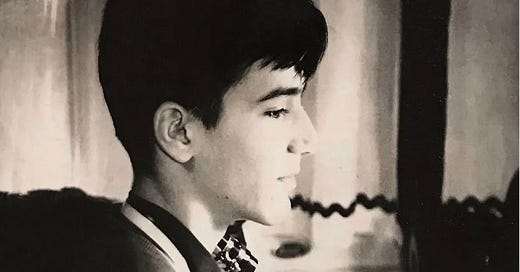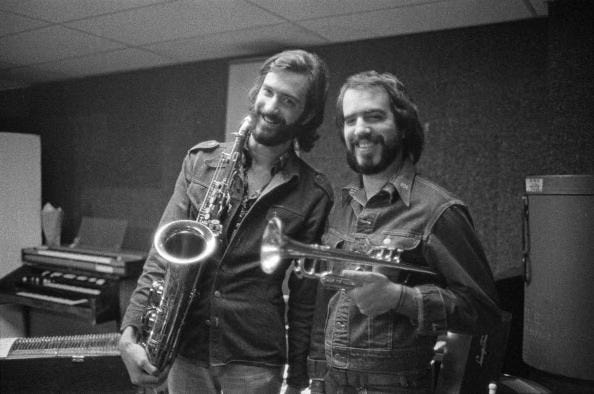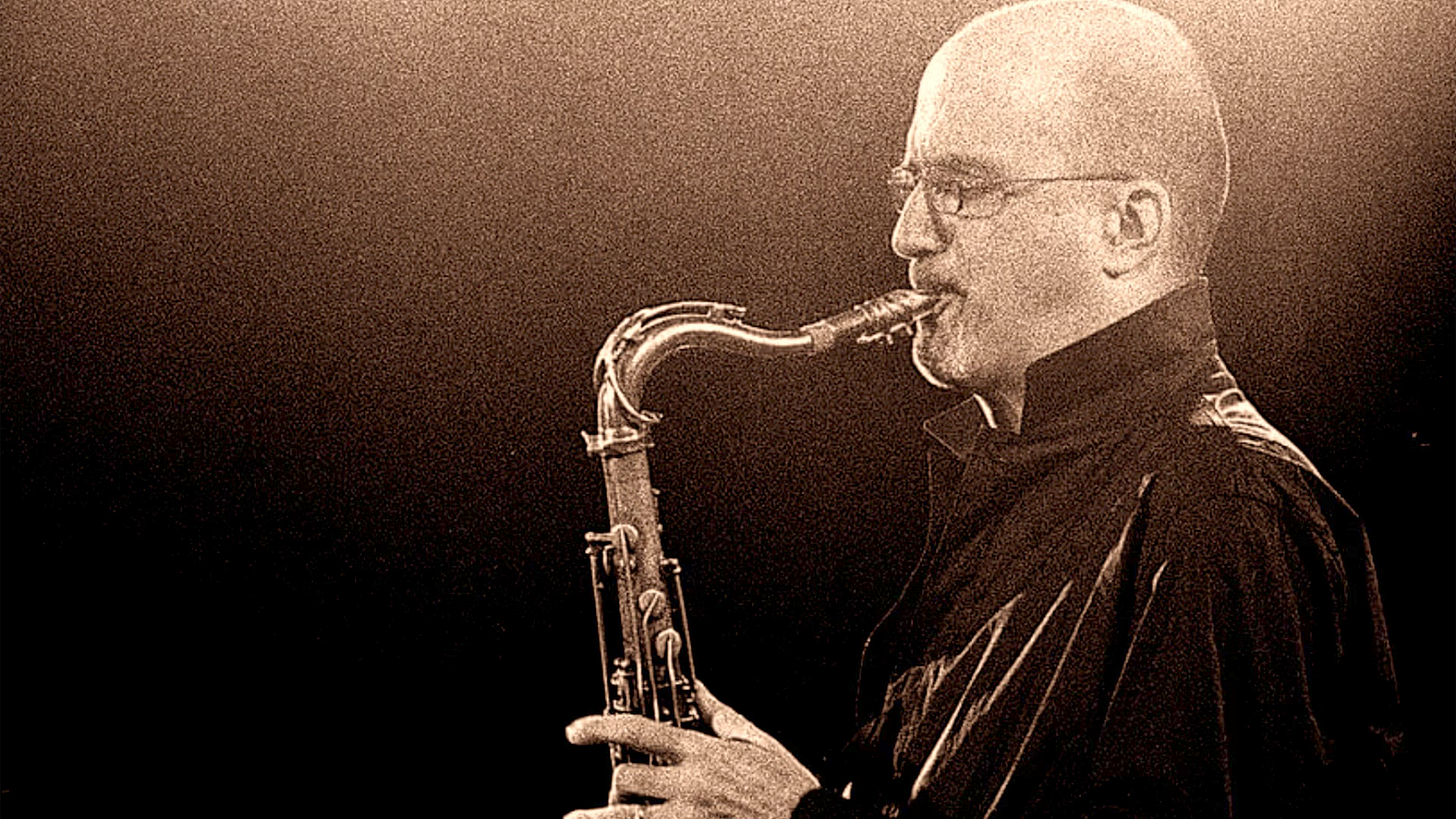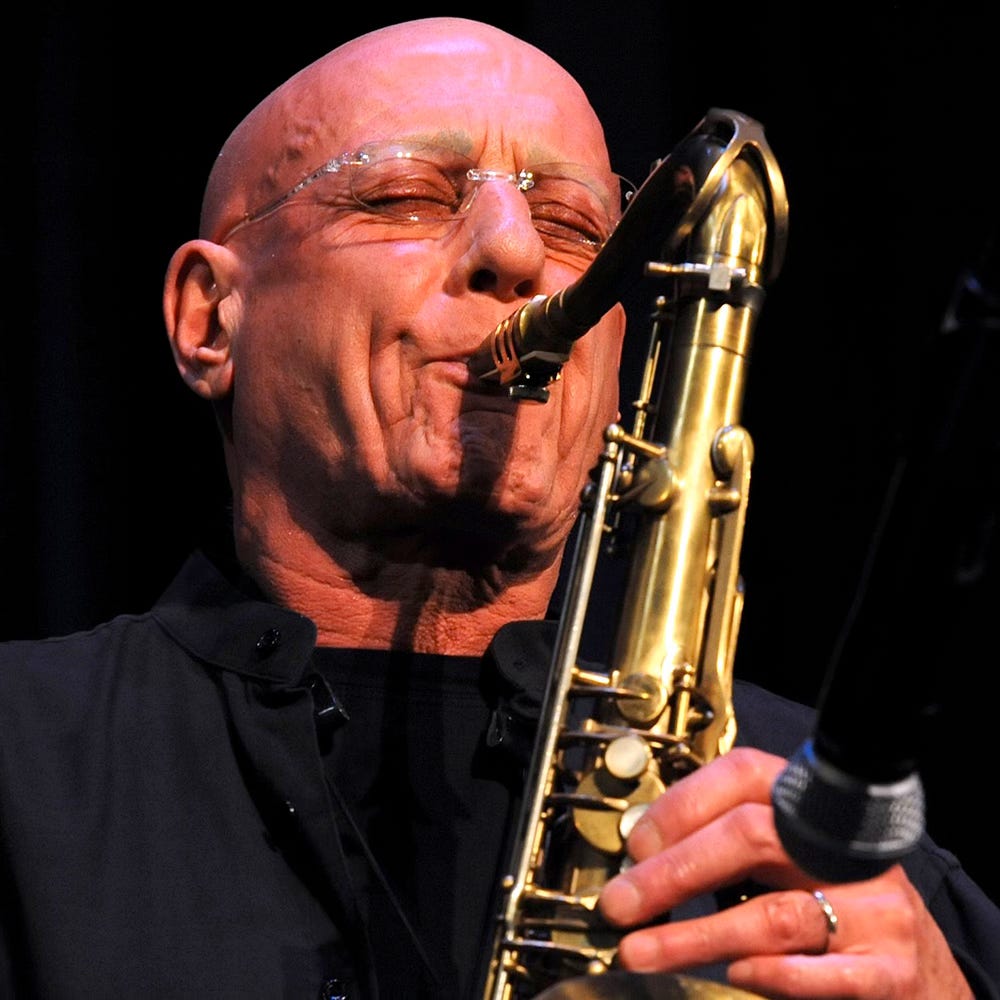I remember the first time I heard Michael Brecker (1949 - 2007). It was on the 1973 Horace Silver recording, In Search of the Twenty Seventh Man, on Horace’s composition Gregory is Here. I was a big Horace Silver fan. One of the first recordings I purchased when I became a jazz listener was Song For My Father. I knew Randy Brecker from Blood Sweat and Tears, but Mike was new to me. As soon he started playing, I had one of those “who the hell is that” moments.
Listen to a rare live version of Gregory is Here featuring Horace on piano; Randy Brecker, trumpet; Bob Cranshaw, bass; and Mickey Roker on drums at the Pori 8, Internationales Finnisches Jazz Festival, April 14, 1973, five months after the original recording, when Mike was twenty four.
In his early 20s Mike already his own sound and concept. He had a profound command over the tenor saxophone that was quickly evident. Clearly a Coltrane disciple with some King Curtis and Stanley Turrentine thrown in as well, his innovative approach to playing the saxophone blended elements of different musical genres, including jazz, rock, and funk, which helped to expand the boundaries of jazz.
After that, I heard Mike with the Brecker Brothers at their club, Seventh Avenue South, a number of times. But it wasn’t until the mid-1990s when I did an interview with Mike and Randy that I had the opportunity to spend some quality time with Michael. In December of 1999, I produced one of the first live webcasts from Birdland, featuring the Saxophone Summit, and we became friends. In the late 90s and early 2000s, I heard Mike’s group many times the band with Joey Calerazzo, James Genus and Jeff Tain Watts. Always great.
Here’s an excerpt from the Birdland webcast from December 17, 1999, Mike’s solo on All Blues with Phil Markowitz on piano, Rufus Reid on bass and Billy Hart on drums. That was one of the most musically satisfying nights of my life.
I believe Michael Brecker was the most important Jazz musician of my generation. His blend of technical prowess, emotional depth, and willingness to explore new musical territories has left an indelible mark on the jazz world and beyond. His legacy continues to inspire and influence musicians and fans alike, ensuring his place as one of the most important figures in modern music.
Saxophonist Joe Lovano was a friend and collaborator. He told the Jerusalem Press that “Mike’s love and passion about creating music and the continuous study of the saxophone will always be an inspiration for me. He was a true virtuoso but constantly worked on his approach to the utmost degree. His influence fuels my ideas every time I play. He is always with me.”
Michael was an especially kind and generous soul. His wife Susan has revealed that during his lifetime, Michael did his best to provide jazz rookies with a helping hand. She told the Jerusalem Press that “on a weekly basis he would receive tapes in the mail – back then it was tapes – that young saxophonists would send him. He listened to every single one of them,” Susan recalled. “Often he would respond to them, and say things like, ‘Keep going, you’re doing great.’” That also took place on a face-to-face basis. “After concerts he would often meet young players and talk to them,” Susan continued. “He made time for everybody.”
Later in his life, Brecker battled a serious illness (myelodysplastic syndrome, a bone marrow disorder), and his courage and dedication to music during this time were admired by many. He continued to play and record music, demonstrating remarkable resilience and passion for his art.
A couple of years ago, I produced the Michael Brecker Podcast, a series of videos that included interviews with many of Mike’s friends and admirers, and a unique performance from Mike on each video.
Terri Hinte, the publicist, introduced me to tenor saxophonist Michael Pedicin. A superb musician, Michael is from Philly and was a close friend of Michael Brecker. We did an interview where he discussed several aspects of Mike’s playing and personality. And that became the podcast that I’m posting here. His insights shed new light on Michael Brecker the man and the musician.
After the interview, there’s a rare performance clip courtesy of Ben Sidran, with Mike and Randy, on the standard Someday My Prince Will Come.
For more on Mike please visit Louis Gerrits’ Facebook group: In Honor of Michael Brecker and read Bill Milkowski’s fascinating biography, Ode to a Tenor Titan.









Thanks for this piece, Bret! I loved the brothers' albums way back when, and Michael kept finding his way into my music collection. It was a terrible shock when he passed so young.
I'm enjoying your newsletter a lot, Bret. I followed you on Facebook, before finally abandoning it a few years ago, and subsequently lost track of you during the troubled pandemic years.
I'm glad you've found some happiness with your relocation to Mexico, as I did to Canada, five decades ago. As I seem to recall, we are both refugees from Joisey. Your writing shows the breadth of your humanity, and your reminiscences are, well, delicious!
I had the same, "Who the hell is that?!!!" reaction when I first heard Michael on Horace's recording of, "Gregory is Here." But soon after, I never had to ask that question again because Michael's sound, vocabulary, and approach was truly singular, but obviously inspired by past masters. I realized that he was THE innovator of his era. What a marvel to observe. He was once a guest soloist with the Carnegie Hall Jazz Band when I was the bassist. I stood directly behind him when he played an unaccompanied version of Coltrane's "Naima." It lasted about 10 minutes, was totally captivating, an unbelievable display of technique combined with deft logic and superb construction. What a story he had to tell! I have never heard saxophone mastery on that level before or since. BTW, I am greatly enjoying your Substack, Bret. The only problem is that it shows me that I had better improve my own, pronto! Keep up the good work and keep swingin'!